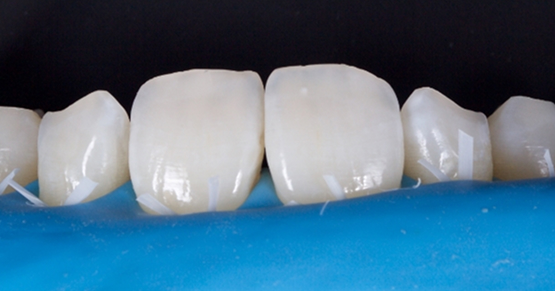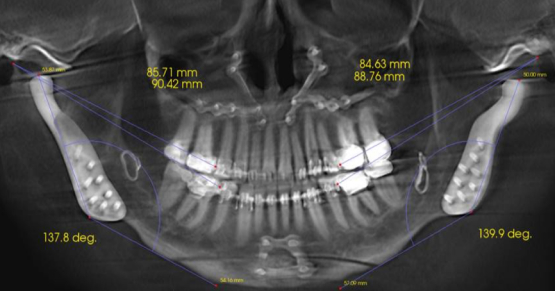How Many Implants Are Needed for a Mandibular Overdenture?
The old joke in dental school regarding dentures was you should charge $4,000 for the upper one and don’t charge anything for the lower. That way, when they come back and complain about the lower, you can say, “What did you expect? You got it for free!”
The truth is, very few patients are happy with their lower complete dentures. In surveys, 80% of patients aren’t happy with the fit or function of their lower prosthesis. With implants, however, 80% of respondents are happy with their lower prosthesis. The question is: How many implants are needed for a mandibular overdenture?
The answer depends on the chief complaint of the patient.
Common problems with lower dentures
Lack of retention
The most common problem with the lower dentures is retention of the denture during speech or mastication. This is due to lack of a bony ridge or no retentive seal because their denture is a horseshoe shape. The tongue retains the lower denture; when the tongue moves, so does the denture.
Luckily, if this is their chief complaint, placement of two implants in the canine to the first premolar area will relieve most of the issues with retaining the denture. The implants need enough separation and anterior–posterior spread to prevent tipping that can cause the retentive rings of the denture to release their hold.
Pain on biting
The more complicated case is when a patient complains of a burning or sharp pain on biting. Typically, they will point to the area where the premolars used to be. The cause of their discomfort is the mental foramen: As the ridge resorbs, the bone over the mental foramen goes away and eventually leads to the mental foramen passively migrating to the top of the ridge. With the mental nerve now sitting directly under the denture, there is pressure on the nerve every time the patient bites down. The pain is similar to when you hit your funny bone, which we all know is not that funny.
This is a case where just retaining the denture is not enough — you have to be able to keep the pressure off the nerve when the patient masticates. This is when you’ll need four implants to retain the lower denture and help keep pressure off the tissue. There is some debate as to whether a bar is needed to accomplish this. The bar can extend over the mental foramen area or bridge over it and allow the denture to be completely supported by the implants. This is the difference between an implant-retained denture and an implant-supported denture.
Without question, the bar will take care of the problem; however, the difficult thing for some patients is the expense of the bar. If the implants can be placed close enough to the mental foramen, then by nature of having the implant there, the pressure on the nerve upon biting will be relieved. The challenge in these cases is finding the bone to work with. The whole problem stems from resorption, so finding enough bone can be challenging. A CBCT scan is a must in these cases, along with a guide to make sure placement is ideal.
SPEAR NAVIGATOR
Transform how your practice runs by engaging the team through
coaching and training
A guided path to excellence through structured coaching and self-guided resources that will align your team, streamline processes and drive growth. Transform your practice by implementing Spear’s proven playbooks for developing and retaining a high-performing dental team.

By: Abigail Pfeiffer
Date: July 31, 2012
Featured Digest articles
Insights and advice from Spear Faculty and industry experts


